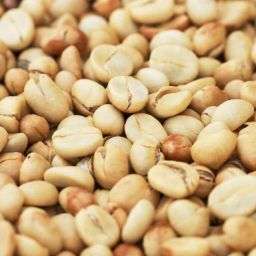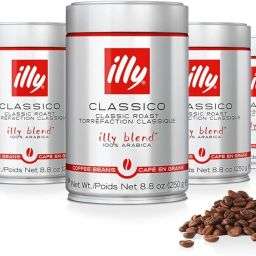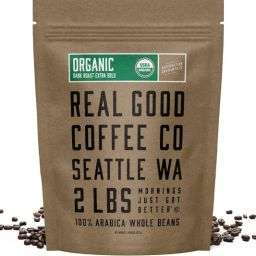
Coffee, one of the world’s most beloved beverages, has been consumed in various forms for centuries. Today, coffee enthusiasts often find themselves at a crossroads between two distinct modes of consumption: eating coffee beans directly or enjoying them in their more traditional, brewed form.
This divergence in coffee consumption practices offers a rich field of exploration, from the sensory experiences each method provides to the different health implications they may carry.
The History of Coffee Consumption
The journey of coffee consumption began with the discovery of the coffee plant and its energizing effects. Historical accounts suggest that coffee was initially consumed in its most natural form: the beans themselves. It is believed that as early as the 6th century, people in Ethiopia, where the coffee plant is thought to have originated, began consuming coffee beans as part of their diet.
The practice of brewing coffee, transforming beans into a beverage, emerged later, revolutionizing the way coffee was consumed and appreciated across the globe.
Nutritional Comparison
When comparing the nutritional content of coffee beans to that of brewed coffee, several key differences emerge. Coffee beans, particularly when eaten whole, retain more of their natural compounds, including antioxidants and dietary fiber. These elements are partially lost during the brewing process.
For instance, one serving of coffee beans can provide a more concentrated dose of beneficial antioxidants like chlorogenic acid, which is known for its health-promoting properties. However, brewed coffee still offers significant health benefits, including reduced risk of chronic diseases, albeit in a diluted form compared to its whole bean counterpart.
Benefits of Eating Coffee Beans
Caffeine Content and Absorption Rates
Eating coffee beans offers a unique advantage in terms of caffeine content and its absorption rate into the body. When coffee beans are consumed whole, the caffeine contained within them is absorbed more quickly than when it is ingested in liquid form through brewed coffee.
This rapid absorption can provide a more immediate energy boost, making it a preferred option for those seeking a quick increase in alertness and focus. Additionally, the total caffeine content is often higher in coffee beans due to the lack of dilution in water, meaning that smaller quantities can deliver significant effects.
Antioxidants and Other Nutritional Benefits
Coffee beans are a rich source of antioxidants, which are compounds known for combating oxidative stress and reducing the risk of chronic diseases. Among these antioxidants, chlorogenic acid stands out for its potential health benefits, including supporting weight management and lowering blood pressure.
Besides antioxidants, eating coffee beans also provides dietary fiber and essential nutrients, contributing to overall health and wellness. The direct consumption of coffee beans thus offers a concentrated dose of these beneficial compounds, potentially amplifying their positive effects on the body.
Benefits of Drinking Coffee
Cardiovascular Health, Diabetes, and Cancer Risk Reduction
Regular consumption of brewed coffee has been associated with numerous health benefits, particularly concerning cardiovascular health, diabetes, and cancer. Studies have suggested that coffee drinkers may have a lower risk of developing type 2 diabetes, thanks to the beverage’s ability to enhance insulin sensitivity.
Additionally, moderate coffee consumption has been linked to a reduced risk of certain types of cancer, including liver and colorectal cancer, due to its high antioxidant content. The potential for coffee to support heart health, reducing the risk of heart disease and stroke, further underscores its role as a beneficial component of a healthy diet.
Cognitive Benefits and Mental Health Improvements
Drinking coffee has also been tied to improved cognitive function and mental health. The caffeine in coffee acts as a stimulant to the central nervous system, enhancing brain function and alertness. This can lead to improved memory, mood, energy levels, and reaction times.
Moreover, coffee consumption has been associated with a lower risk of developing neurodegenerative disorders, such as Alzheimer’s disease and Parkinson’s disease, offering protective effects on the brain. The mental health benefits extend to a reduced risk of depression, with coffee drinkers showing lower rates of depressive symptoms and suicide risk.
In sum, both eating coffee beans and drinking brewed coffee offer distinct and overlapping health benefits, from enhanced physical performance and disease prevention to improved mental health and cognitive function. Choosing between these two methods of consumption may depend on personal preferences, desired effects, and individual health considerations.
Risks of Eating Coffee Beans
Overconsumption and Caffeine Toxicity
Eating coffee beans can lead to overconsumption of caffeine more easily than drinking coffee, due to their concentrated caffeine content. This can result in caffeine toxicity, symptoms of which include jitteriness, heart palpitations, and in severe cases, more serious health issues. The rapid absorption of caffeine from coffee beans exacerbates these risks, making it important to consume them in moderation.
Gastrointestinal Issues and Other Health Concerns
Consuming coffee beans may also cause gastrointestinal discomfort, including acid reflux and increased stomach acidity, leading to heartburn and discomfort. The presence of compounds such as catechols and caffeine, which can irritate the digestive tract, contribute to these effects. Additionally, the high fiber content, while beneficial in moderate amounts, can cause digestive issues if coffee beans are eaten in large quantities.
Risks of Drinking Coffee
Comparing the Acidity and Its Effects
The acidity of brewed coffee, although lower than that of whole beans, can still contribute to gastrointestinal issues such as acid reflux and heartburn in sensitive individuals. The brewing process may reduce some acidic compounds but does not eliminate them entirely, potentially leading to discomfort for those with sensitive stomachs.
Possible Long-Term Health Impacts
While moderate coffee consumption is associated with several health benefits, excessive intake can have adverse effects, including potential impacts on cardiovascular health and bone density. The balance between its antioxidant benefits and risks associated with overconsumption of caffeine and acidity highlights the need for moderation.
FAQs
- How many coffee beans can you safely eat? It’s recommended to limit caffeine intake to about 400 milligrams per day, equivalent to approximately 30-40 coffee beans, depending on the bean’s caffeine content.
- Is eating coffee beans more beneficial than drinking coffee? Eating coffee beans provides a more concentrated source of caffeine and antioxidants, but also comes with increased risks of gastrointestinal discomfort and caffeine toxicity. The choice depends on personal health, preferences, and tolerance.
- Can you use coffee beans in baking? Yes, coffee beans can be ground into a powder and used in baking for a rich coffee flavor, or whole beans can be added to recipes like chocolate or nuts for added texture and flavor.
- What are the effects of coffee beans on animals? Caffeine is toxic to many animals, so coffee beans should be kept away from pets to avoid accidental ingestion, which can be harmful or even fatal.
- How does caffeine affect your health? Caffeine can improve focus and energy levels but may also cause jitteriness, anxiety, and sleep disturbances if consumed in excess. Moderation is key to avoiding negative side effects.
Conclusion
Both eating coffee beans and drinking brewed coffee offer unique benefits and potential risks. Eating coffee beans provides a concentrated source of caffeine and antioxidants but comes with a higher risk of overconsumption and gastrointestinal issues.
Drinking coffee is a more traditional way to enjoy the beverage’s benefits, with its own set of considerations regarding acidity and health impacts. Ultimately, moderation and personal health considerations should guide your coffee consumption preferences.









